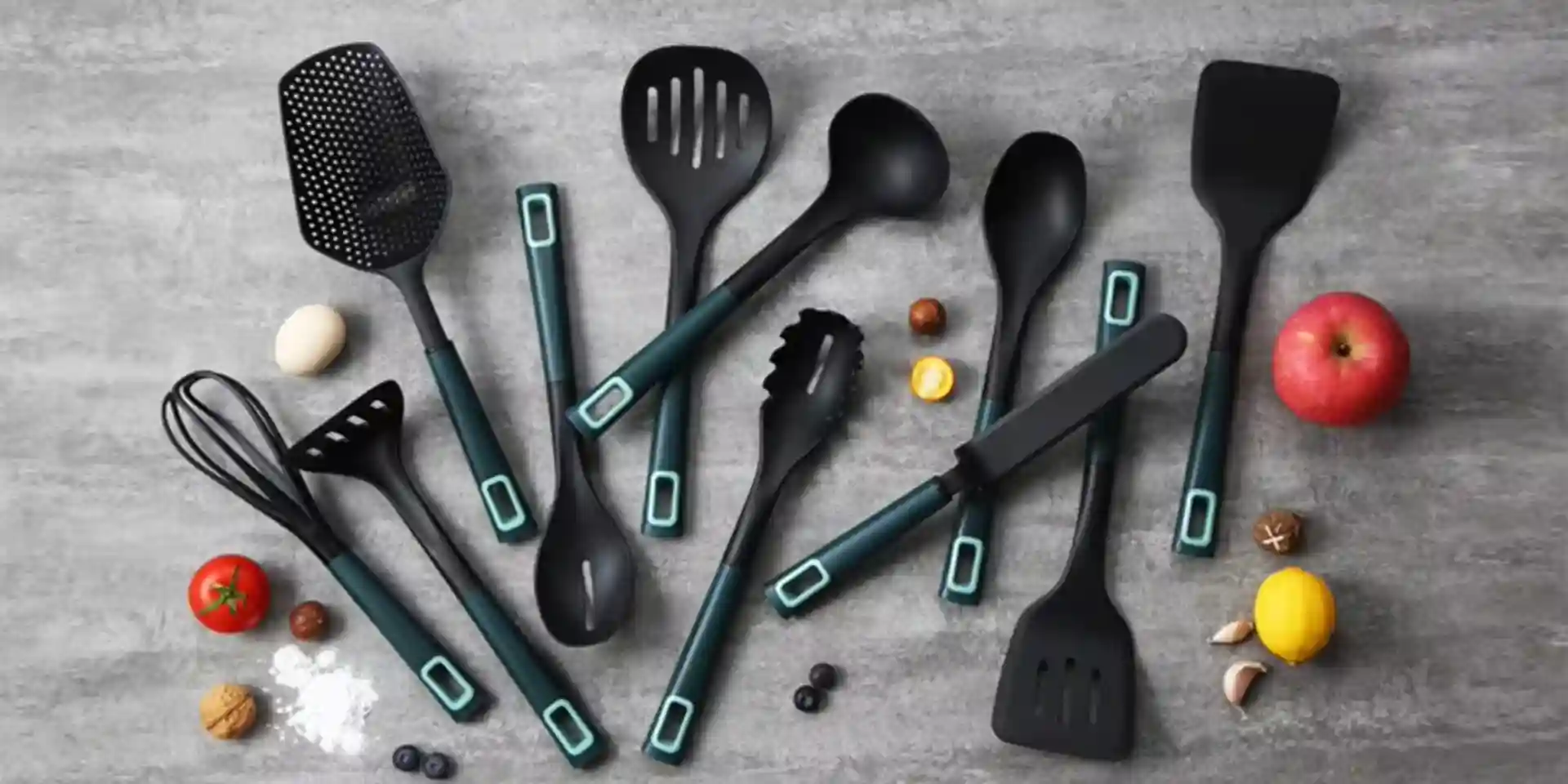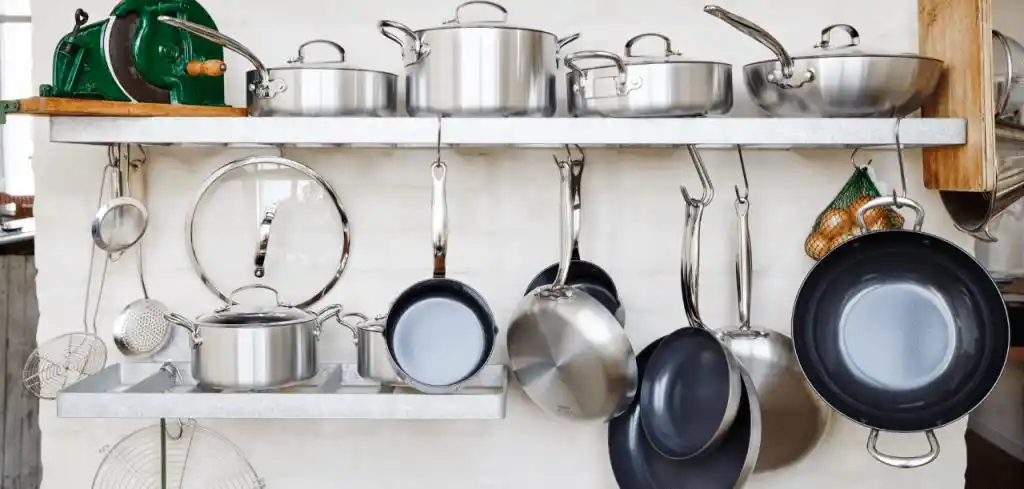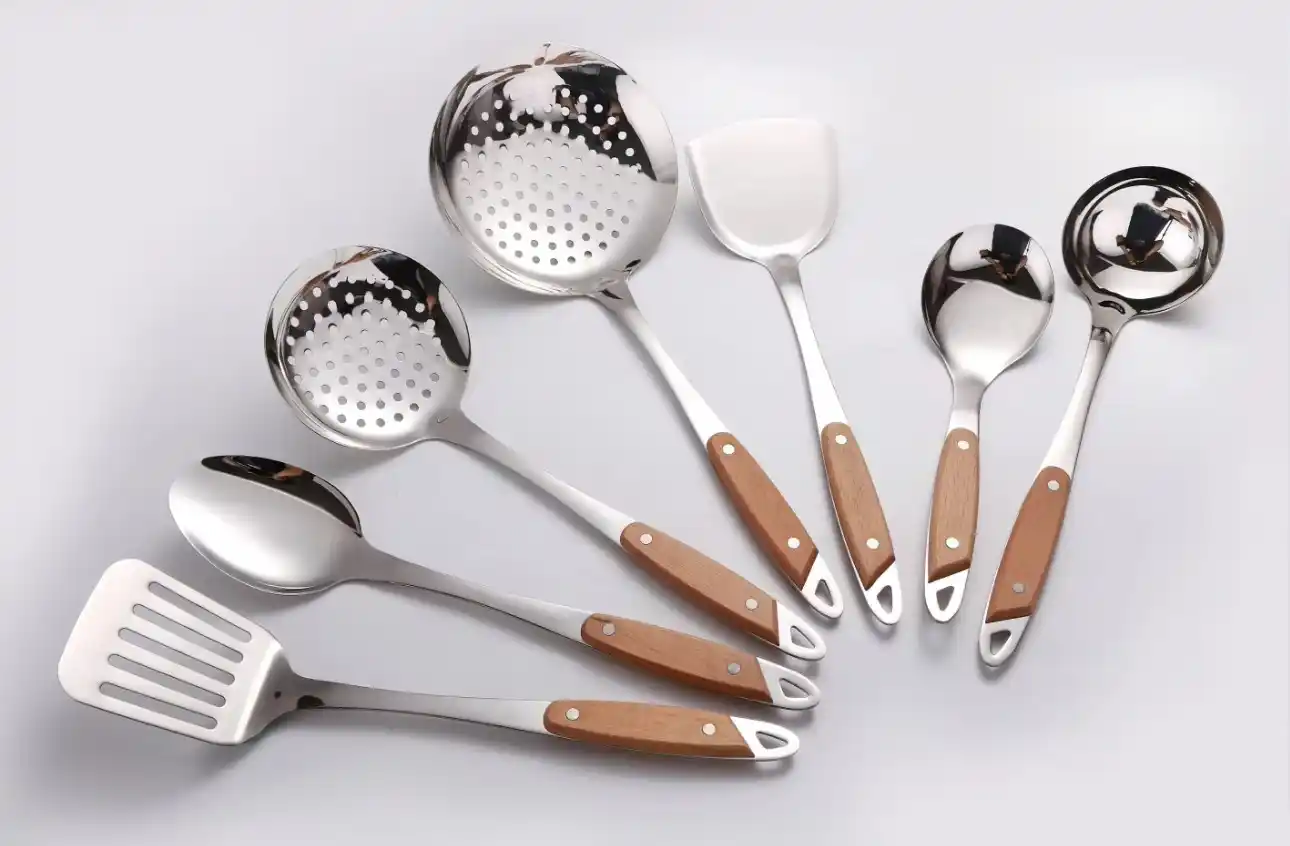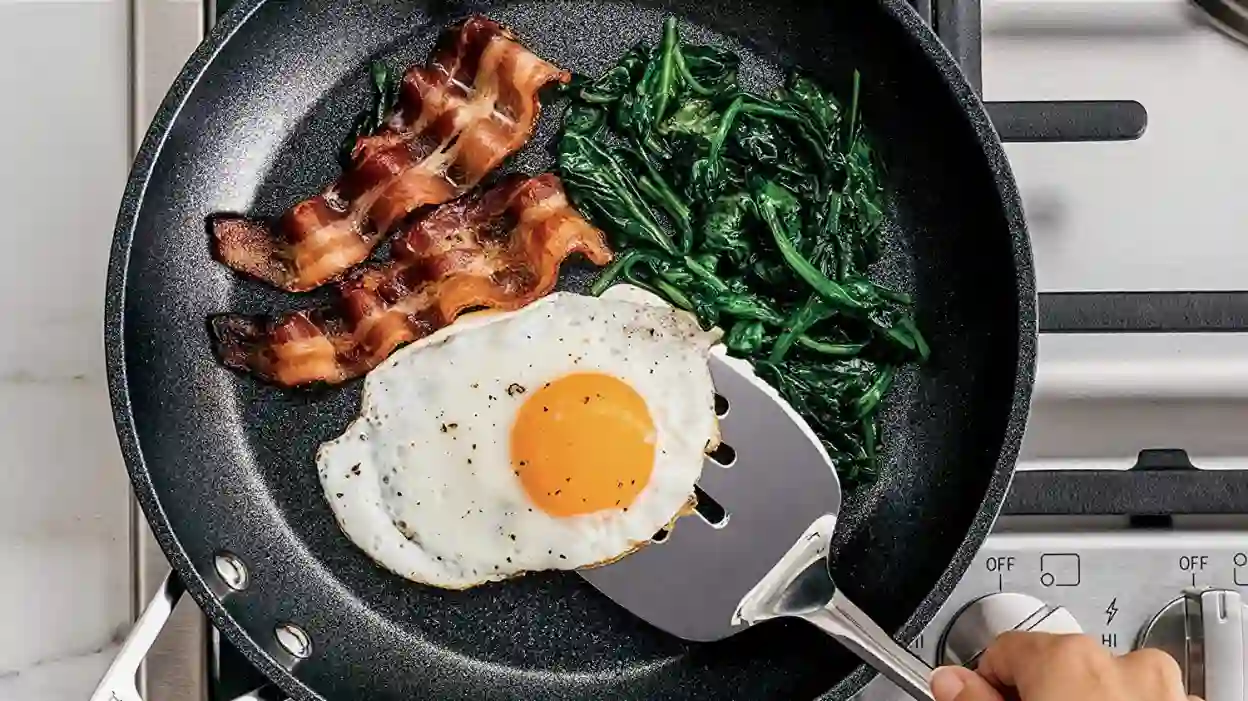Are Nylon Cooking Utensils Safe?
In the diverse world of cooking utensils, different materials have their own unique benefits and applications. Among these, nylon cooking utensils are becoming increasingly popular due to their affordability, versatility and non-stick properties. But with growing concerns about health and safety in food preparation, many are left wondering: are nylon cooking utensils really safe?
What Are Nylon Cooking Utensils?
Nylon cooking utensils are made from nylon, a type of thermoplastic polymer derived from petroleum. It is a silky material that can be melted into various forms, such as fibers, films, and shapes. It’s been called “the most useful synthetic material” because of its versatility. Common nylon cooking utensils include spatulas, spoons, turners, and ladles. These tools are often praised for their resistance to heat and scratches, making them a popular choice in many households.
The Benefits of Nylon Cooking Utensils
1. Heat Resistance: One of the standout features of nylon utensils is their heat resistance. Most nylon kitchen tools can withstand temperatures up to 400°F (204°C) without melting or warping. This makes them ideal for use with hot cookware, such as frying pans and saucepans.
2. Durability: Nylon is a tough material that resists wear and tear. Unlike wooden cooking utensils that can crack or splinter, or metal utensils that can bend or rust, nylon cooking utensils are built to last. They are resistant to staining and odors, and they don’t absorb liquids or food particles, which helps maintain hygiene.
3. Non-Reactive: Nylon cooking utensils are non-reactive, meaning they won’t interact with acidic or alkaline foods. This property is crucial when cooking with ingredients like tomatoes or citrus, which can sometimes react with other materials.
4. Non-Scratch: Nylon cooking utensils are gentle on non-stick cookware surfaces. Unlike metal utensils that can scratch and damage these surfaces, nylon utensils are non-scratch and help preserve the integrity of your cookware.
5. Affordability: Compared to other materials like silicone or stainless steel, nylon cooking utensils are generally more affordable. This makes them a cost-effective choice for equipping your kitchen without compromising on functionality.
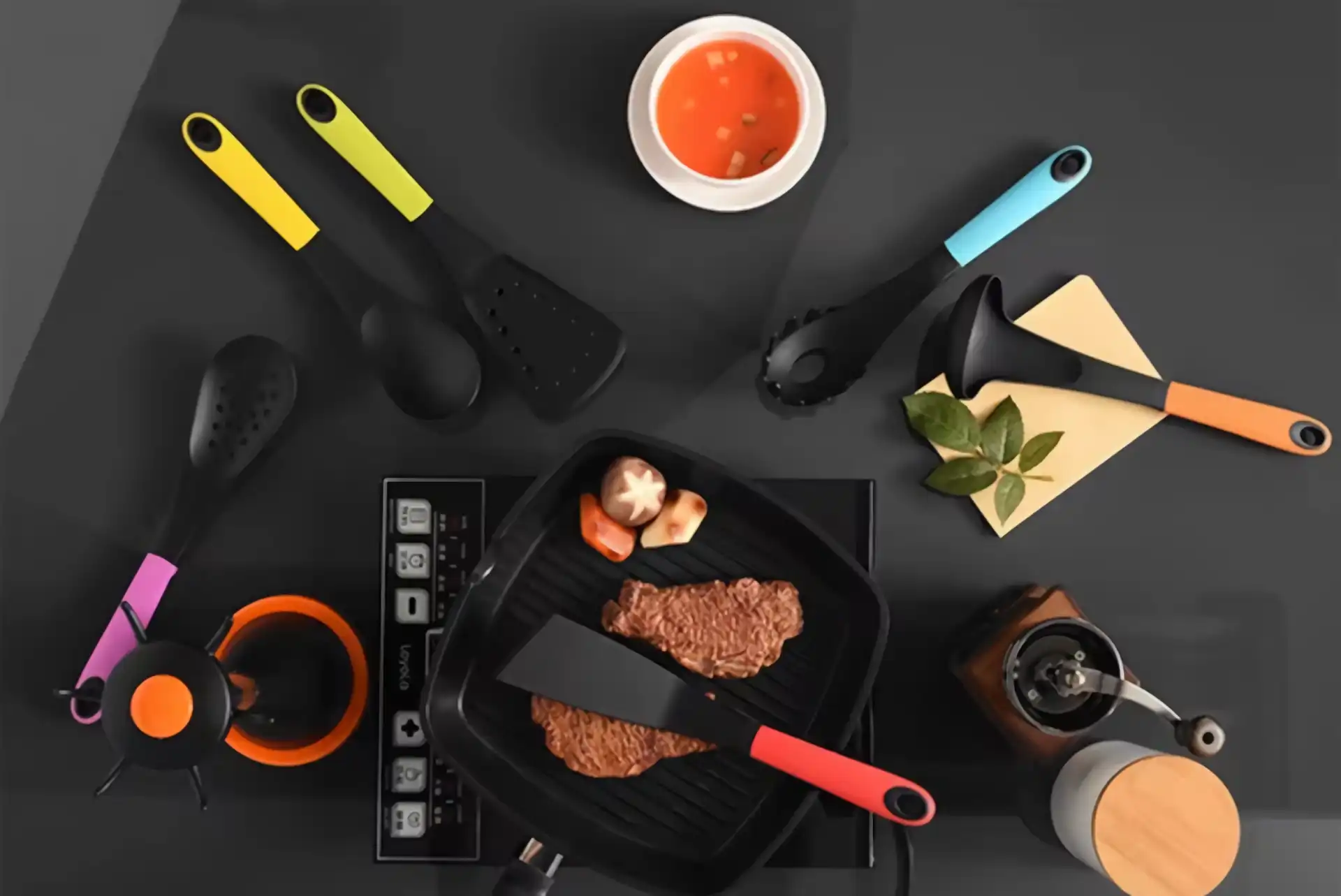
Are Nylon Cooking Utensils Safe for Kitchen?
While nylon cooking utensils have numerous benefits, their safety is a critical consideration. Here’s a closer look at potential concerns and clarifications surrounding nylon kitchen utensils:
1. Chemical Safety
Nylon is derived from petrochemicals, and there have been concerns about the release of harmful substances, such as Primary Aromatic Amines (PAA) or diamino diphenylmethane (DDM) when nylon is heated. However, reputable manufacturers ensure that their nylon cooking utensils meet safety standards and regulations. The risk of chemicals leaching from nylon utensils into food is minimal when used according to the manufacturer’s guidelines.
2. Heat Degradation
Nylon cooking utensils can withstand high temperatures, but prolonged exposure to extreme heat can cause degradation. Over time, excessive heat may lead to the release of small amounts of chemicals. To minimize this risk, use nylon utensils within their specified temperature range and avoid leaving them in hot cookware for extended periods.
3. Wear and Tear
As with any material, nylon can wear out over time. Scratches and cracks can develop, potentially harboring bacteria. Regularly inspect your nylon cooking utensils for signs of wear and replace them if they become damaged. Proper care and maintenance can help extend their lifespan and ensure they remain safe to use.
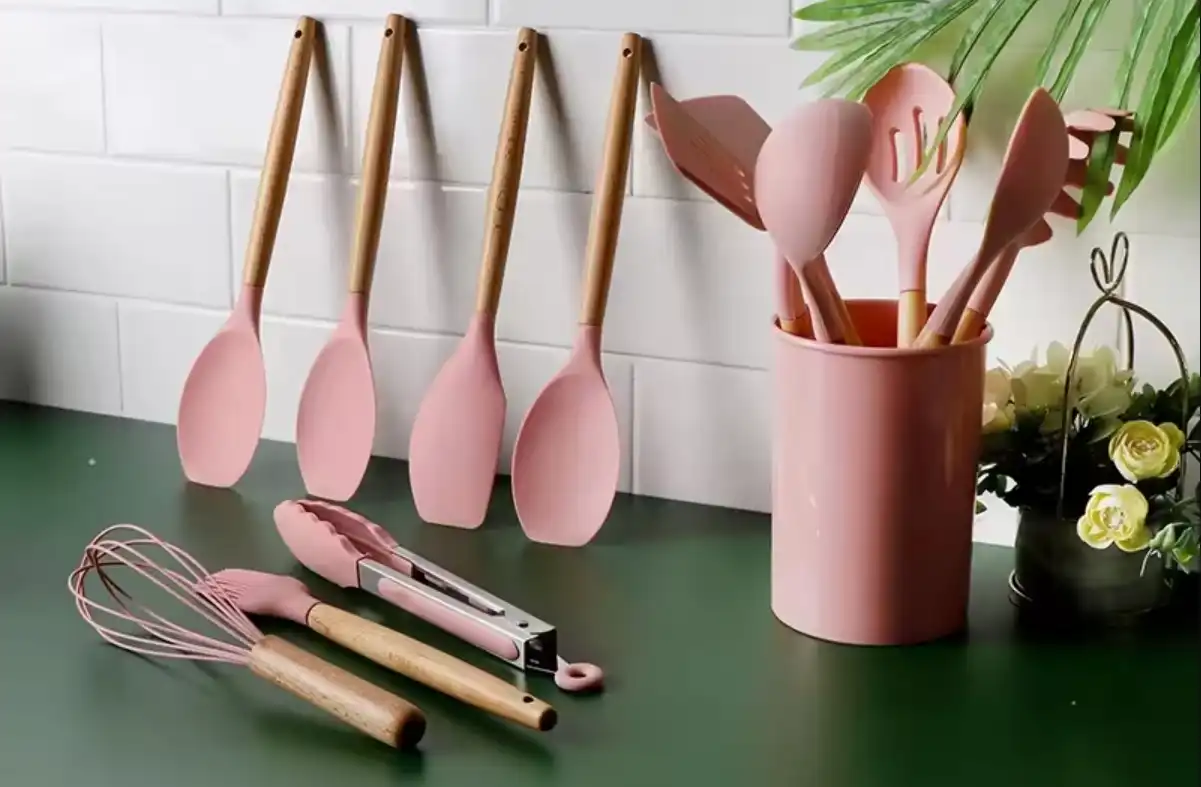
How to Use Nylon Cooking Utensils Safely?
Using nylon utensils occasionally for cooking poses minimal risk, but it’s wise to be cautious. While the potential for harm is low, it’s important to take steps to further reduce any risk of exposure to potentially harmful compounds. Here’s how you can minimize risks when using nylon cooking tools:
1. Avoid Leaving Utensils in Hot Pans: Don’t leave your nylon spatulas or nylon ladles resting in hot cookware. This can cause them to overheat and possibly deform.
2. Limit Contact Time: Reduce the duration of contact between the nylon utensils and hot food. For example, use them for mixing or serving and then remove them from the heat source as soon as possible.
3. Use for Low-Temperature Cooking: Use nylon cooking utensils when preparing foods at lower temperatures. This helps prevent excessive heat exposure that could potentially melt the material.
4. Avoid Overuse: Use nylon cooking utensils within their intended purpose to prevent premature wear. For example, do not use a nylon spatula for tasks like cutting or scraping tough residues that could damage the utensil.
5. Inspect and Replace Damaged Utensils: Regularly check your nylon cooking utensils for any signs of deformation, melting, or cracks. If you notice any damage, discontinue use immediately to prevent potential risks.
By following these guidelines, you can safely enjoy the benefits of nylon cooking utensils while minimizing any potential risks.
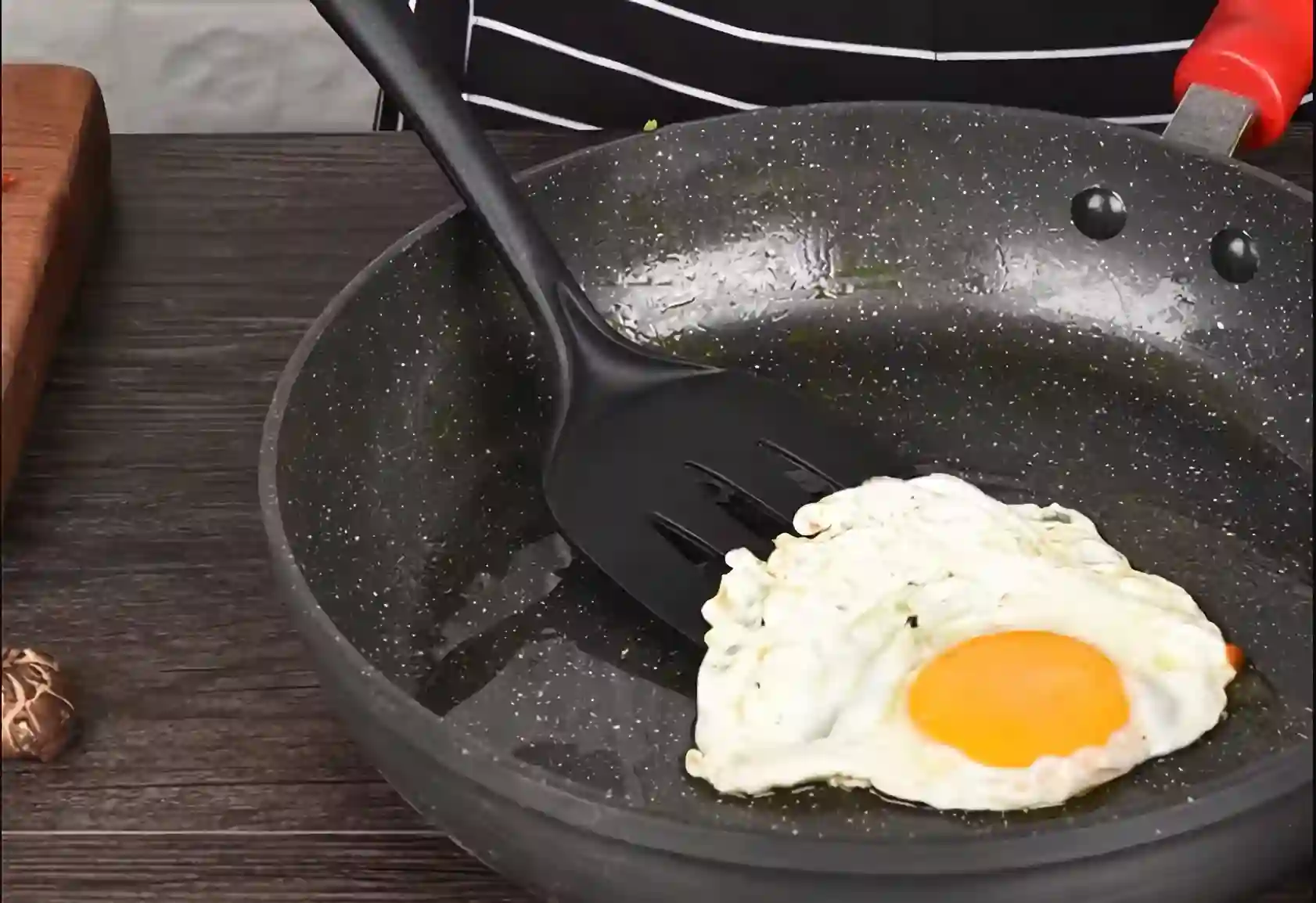
Alternatives to Nylon Cooking Utensils
If you’re concerned about the potential drawbacks of nylon utensils, there are non-toxic alternative materials to consider:
Stainless Steel Cooking Utensils
Stainless steel utensils are durable and non-reactive. They are ideal for tasks requiring strength and precision. However, they can scratch non-stick surfaces and are not suitable for high-heat situations without risk.
Silicone Cooking Utensils
Silicone utensils are another popular choice, known for their flexibility, heat resistance, and non-reactive properties. They are also gentle on cookware and can withstand even higher temperatures than nylon. However, they can be more expensive.
Wooden Cooking Utensils
Wooden utensils are a traditional choice with a natural appeal. They are gentle on non-stick surfaces and do not react with food. However, they require more maintenance and can be prone to cracking or absorbing odors.
Related Articles:
Why Stainless Steel is the Best Choice for Kitchen Utensils?
Why Use Silicone Cooking Utensils?
Are Wooden Utensils Good for Cooking?
Frequently Asked Questions
Conclusion
When considering the safety of nylon cooking utensils, we can make an informed decision on the kitchen tools by learning the benefits and potential drawbacks of nylon utensils.
Overall, nylon cooking utensils are a durable, and cost-effective choice for many home cooks. Their heat resistance, non-scratch properties, and affordability make them a practical option for everyday use. While there are some concerns regarding chemical safety and wear over time, following proper care guidelines can mitigate these risks.
Whether you choose nylon utensils or explore alternatives, the key is to select utensils that suit your cooking style and needs while ensuring they are used and maintained properly.

